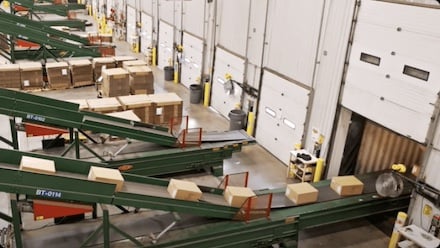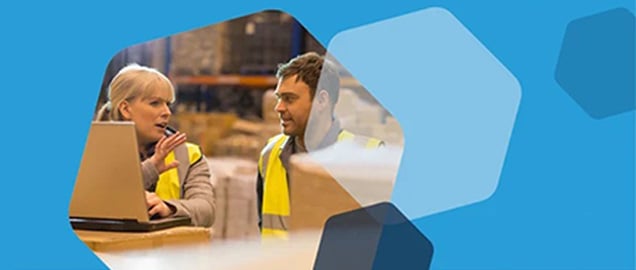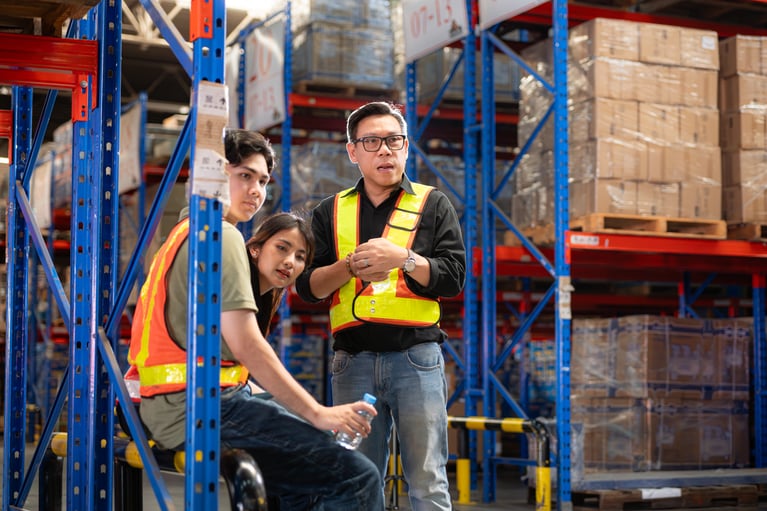Handling logistics in-house can give some businesses a competitive edge. However, as operations scale, the process becomes more complex, time-consuming and costly. In-house logistics requires significant capital investments, including labor, facility maintenance, hardware, software, facility insurance and more. Further, operational costs can rise unpredictably, causing financial strain when sales fluctuate.
Industry-leading 3PL providers have the expertise, infrastructure and technology investments to manage logistics. Consider outsourcing to the right 3PL provider to gain a competitive advantage and deliver better business outcomes.
Is in-house fulfillment always the best option?
Although many businesses start with in-house fulfillment, outsourcing to a 3PL can ensure consistent pick, pack and shipping costs, even during demand shifts. Companies struggling with seasonal demand fluctuations, workforce management, high inventory holding costs or market expansion may find that partnering with a 3PL offers greater flexibility and cost savings.
Here are some key indicators that it’s time to outsource:- rising operational expenses
- warehouse space limitations
- difficulty meeting customer expectations for fast, accurate deliveries.
As a general rule, unless your brand offers exceptional supply chain and logistics management and optimization abilities, partnering with a 3PL is a wise choice when your business shows signs of consistent growth and expansion.
Comparing in-house fulfillment & 3PL outsourcing
|
|
Comparing in-house fulfillment & 3PL outsourcing |
||
| Challenge |
In-house fulfillment | Benefits of 3PL outsourcing | |
| 1. | Inventory storage |
High upfront costs and underused space |
Scalable space, no long-term lease risk |
| 2. | Cost allocation |
Hidden costs (utilities, supplies and payroll) |
Bundled pricing with fewer overhead burdens |
| 3. | Equipment & technology |
Expensive equipment and software needed |
Infrastructure and tech included |
| 4. | Retaining staff |
Hiring and training add complexity |
3PL manages staffing, even during peaks |
| 5. | Picking, packing & shipping |
Manual processing and fulfillment optimization required |
Automated, accurate fulfillment via WMS |
| 6. | Customization |
Must develop and manage branded packaging internally |
Offers branded packaging, kitting and inserts |
| 7. | Tracking & inventory management |
Manual tracking risks over/understock |
Real-time tracking and auto-replenishment |
| 8. | Returns processing |
Labor-intensive reverse logistics |
Streamlined returns with faster resolution |
3PLs improve logistics efficiency
Working with an expert 3PL has many benefits, including:
- Optimize your operations and improve logistics efficiency
- Receive expert customer service
- Access fulfillment warehouse networks, tools, technology
- Years of experience
The right provider can help you easily scale without the challenges of maintaining physical infrastructure, retaining and training staff, purchasing, updating and supporting technology. Further, it can improve delivery speed, reduce fulfillment errors and provide access to more cost-effective shipping rates.
However, partnering with a 3PL provider does come with a degree of risk, and we will discuss the potential challenges of outsourcing below.
Potential challenges of outsourcing
While a 3PL provider can help you take your business to the next level, not all providers are created equal. Here are common challenges when outsourcing to a 3PL that isn’t the right fit for your business:
- Limited or inadequate customer service
- Communication lapses
- Reduced visibility into operations and billing
- Hidden fees and charges
- Loss of inventory
- Data security
- Damage to brand reputation
The right 3PL provider for your business can face challenges head-on and address them swiftly. Before choosing a provider at random, you’ll want to be sure that they can provide excellent customer service and support teams, upfront pricing structures, government-grade security, and full visibility and control over warehouse, inventory and shipping management systems.
Partner with Cart.com
Cart.com is a leader in the industry, providing logistics solutions that enable B2C and B2B companies to dominate omnichannel commerce, from product discovery to order delivery. When you partner with Cart, you’ll gain access to our nationwide fulfillment network, advanced, proprietary management systems and teams of qualified experts who are invested in you and your customers’ success.
Whether your company is experiencing rapid growth, expanding into new markets or simply seeking ways to optimize logistics operations, outsourcing to Cart is a strategic move that can drive long-term success.
Is outsourcing to a 3PL the right choice for your business or brand? Contact Cart.com today. We’ll answer any questions you have and provide additional insights into solving common logistical challenges, enabling you to scale with growth confidently.
Subscribe to our emails for the latest industry insights!
By entering your email, you agree to receive marketing emails from Cart.com






